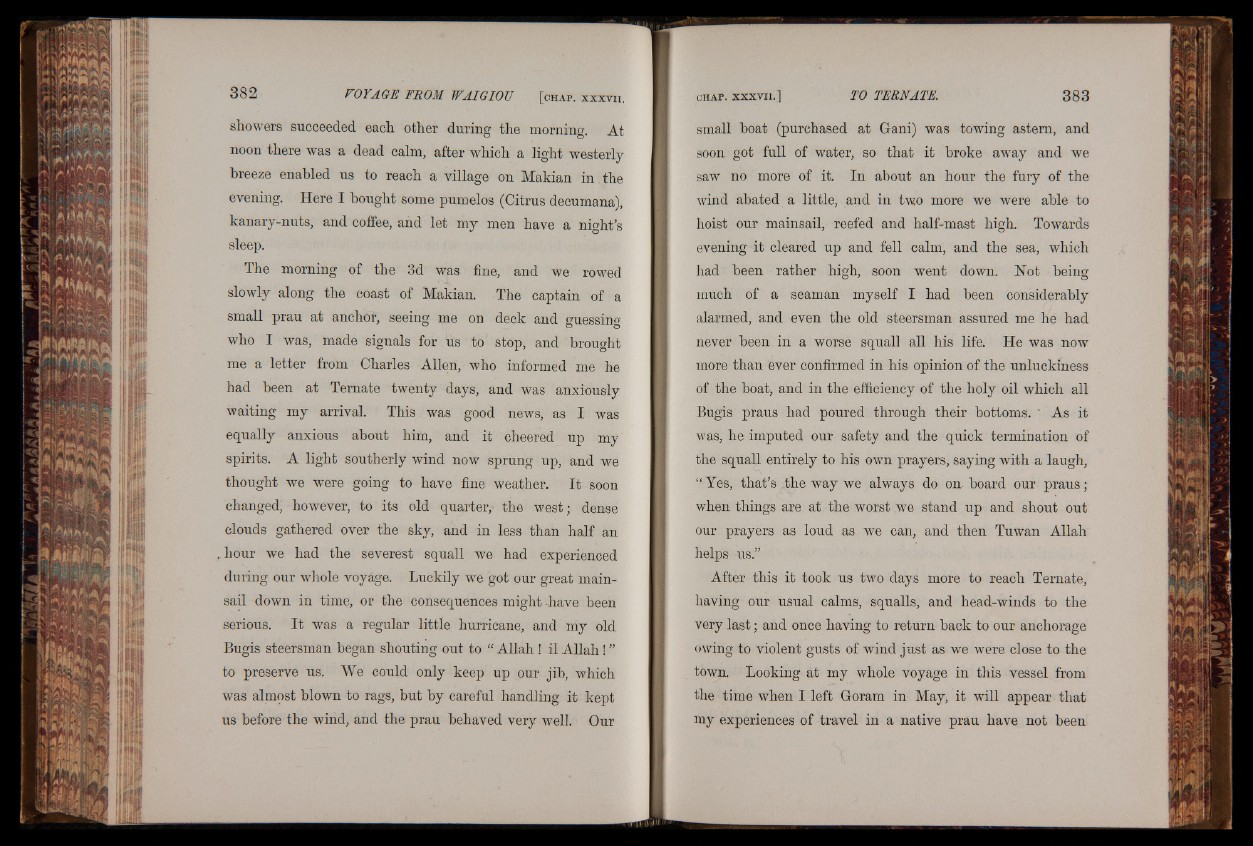
showers succeeded each other during the morning. At
noon there was a dead calm, after which a light westerly
breeze enabled us to reach a village on Makian in the
evening. Here I bought some pumelos (Citrus decumana),
kanary-nuts, and coffee, and let my men have a night’s
sleep.
The morning of the 3d was fine, and we rowed
slowly along the coast of Makian. The captain of a
small prau at anchor, seeing me on deck and guessing
who I was, made signals for us to stop, and brought
me a letter from Charles Allen, who informed me he
had been at Ternate twenty days, and was anxiously
waiting my arrival. This was good news, as I was
equally anxious about him, and it cheered up my
spirits. A light southerly wind now sprung up, and we
thought we were going to have fine weather. It soon
changed; however, to its old quarter,- the west; dense
clouds gathered over the sky, and in less than half an
hour we had the severest squall we had experienced
during our whole voyage. Luckily we got our great mainsail
down in time, or the consequences might -have been
serious. It was a regular little hurricane, and my old
Bugis steersman began shouting out to “ Allah ! il Allah! I
to preserve us. We could only keep up our jib, which
was almost blown to rags, but by careful handling it kept
us before the wind, and the prau behaved very well. Our
small boat (purchased at Gani) was towing astern, and
soon got full of water, so that it broke away and we
saw no more of it. In about an hour the fury of the
wind abated a little, and in two more we were able to
hoist our mainsail, reefed and half-mast high. Towards
evening it cleared up and fell calm, and the sea, which
had been rather high, soon went down. Not being
much of a seaman myself I had been considerably
alarmed, and even the old steersman assured me he had
never been in a worse squall all his life. He was now
more than ever confirmed in his opinion of the unluckiness
of the boat, and in the efficiency of the holy oil which all
Bugis praus had poured through their bottoms. ' As it
was, he imputed our safety and the quick termination of
the squall entirely to his own prayers, saying with a laugh,
“Yes, that’s rthe way we always do on. board our praus;
when things are at the worst we stand up and shout out
our prayers as loud as we can, and then Tuwan Allah
helps us.”
After this it took us two days more to reach Ternate,
having our usual calms, squalls, and head-winds to the
very last; and once having to return back to our anchorage
owing to violent gusts of wind just as we were close to the
town. Looking at my whole voyage in this vessel from
the time when I left Goram in May, it will appear that
my experiences of travel in a native prau have not been